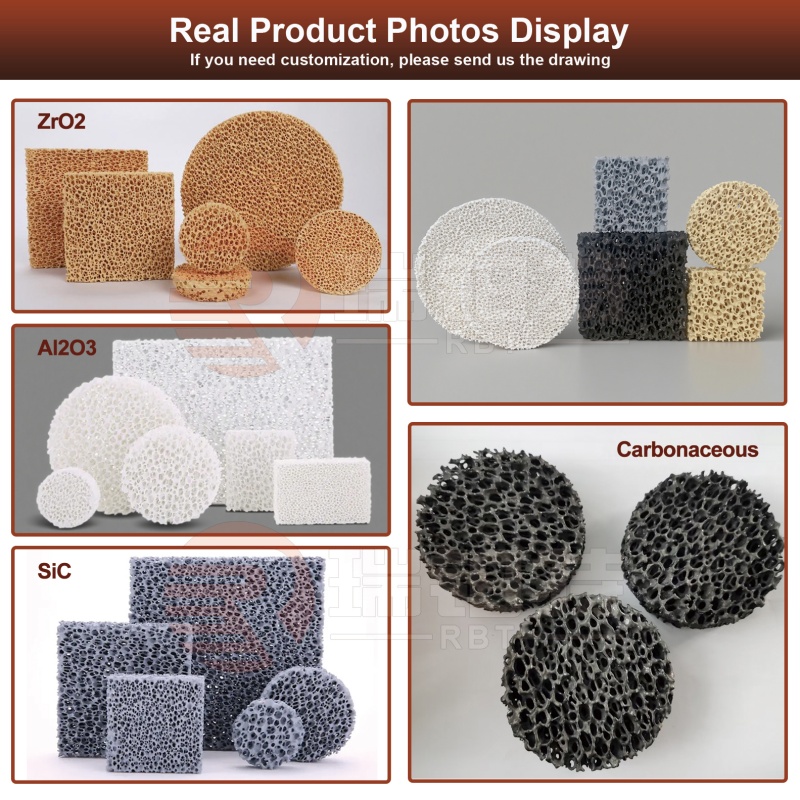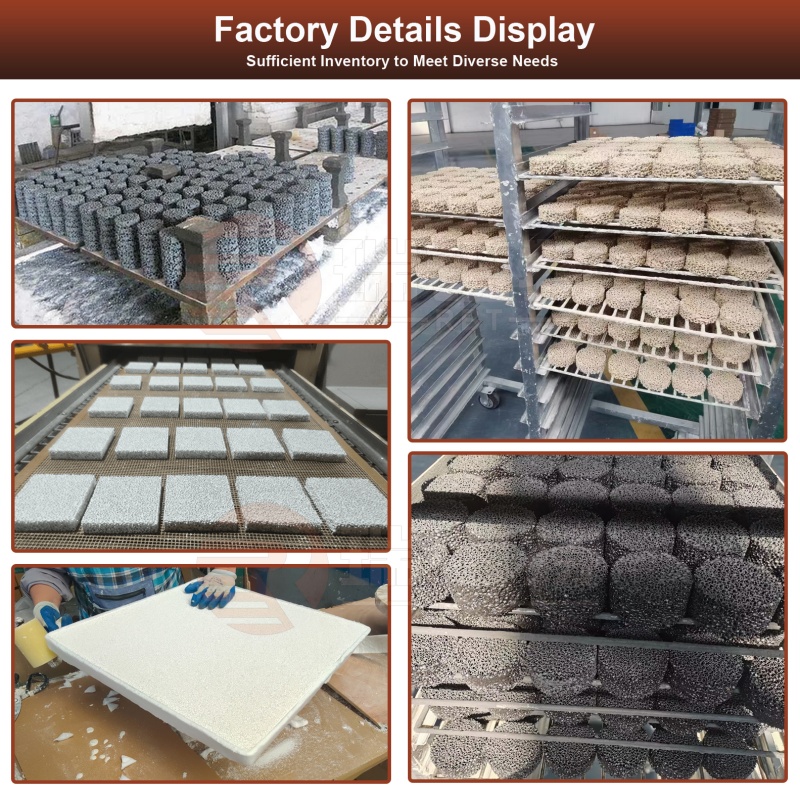
If you`re in metal casting, you know how costly defects like porosity, inclusions, or cracks can be. Ceramic Foam Filters (CFF) aren’t just “filters”—they’re a critical tool to purify molten metal, improve casting integrity, and cut production waste. But what exactly are they used for? Let’s break down their key applications by industry and metal type, so you can see how they fit your workflow.
1. Non-Ferrous Metal Casting: Make Aluminum, Copper, Zinc Castings Flawless
Non-ferrous metals (aluminum, copper, zinc, magnesium) are widely used in auto, electronics, and plumbing—but their melts are prone to oxide inclusions and gas bubbles. Ceramic Foam Filters fix this by trapping impurities before they reach the mold.
Key Uses Here:
Aluminum Casting (the biggest non-ferrous use case):
Filters remove Al₂O₃ oxides and tiny debris from molten aluminum, ensuring smooth, strong castings. Perfect for:
Auto parts: Wheels, engine blocks, transmission housings (fewer defects mean longer part life).
Aerospace components: Lightweight aluminum alloys for aircraft frames (needs ultra-pure metal).
Consumer goods: Aluminum cookware, laptop casings (no surface blemishes).
Copper & Brass Casting:
Traps sulfide inclusions and refractory fragments, preventing leaks in:
Plumbing parts: Valves, fittings, pipes (critical for water-tight performance).
Electrical components: Brass connectors, terminals (pure copper ensures good conductivity).
Zinc & Magnesium Casting:
Filters control oxide buildup in high-pressure die casting (HPDC) for:
Electronics: Zinc alloy phone cases, magnesium laptop frames (thin walls need no defects).
Hardware: Zinc door handles, magnesium power tool parts (consistent quality).
2. Ferrous Metal Casting: Fix Steel, Iron Castings for Heavy-Duty Use
Ferrous metals (steel, cast iron) handle high stress—but their high-temperature melts (1500°C+) demand tough filters. Ceramic Foam Filters here block slag, graphite fragments, and oxides that ruin strength.
Key Uses Here:
Steel & Stainless Steel Casting:
Withstands hot steel melts to produce reliable parts for:
Industrial machinery: Steel valves, pump bodies, gearboxes (no internal cracks = less downtime).
Construction: Stainless steel structural brackets, rebar connectors (resists corrosion).
Medical equipment: Stainless steel surgical tools, hospital sinks (pure metal = safe use).
Cast Iron Casting:
Improves microstructure for:
Automotive: Gray iron brake discs, ductile iron crankshafts (handles friction and torque).
Heavy equipment: Cast iron tractor parts, crusher jaws (needs wear resistance).
Pipes: Gray iron water pipes (no leaks from inclusions).
3. Specialized High-Temp Casting: Tackle Titanium, Refractory Alloys
For extreme applications (aerospace, nuclear), where metals are super-hot (1800°C+) or reactive (titanium), standard filters fail. Ceramic Foam Filters (specifically ZrO₂-based) are the only solution.
Key Uses Here:
Titanium Alloy Casting:
Titanium melts react with most materials—but ZrO₂ filters stay inert, making:
Aerospace parts: Titanium engine blades, aircraft landing gear (needs ultra-pure metal for high altitude).
Medical implants: Titanium hip replacements, dental abutments (no contamination = biocompatible).
Refractory Alloy Casting:
Filters non-ferrous superalloys (nickel-based, cobalt-based) for:
Power generation: Nickel-alloy gas turbine parts (handles 1000°C+ exhaust).
Nuclear industry: Zirconium alloy fuel cladding (resists radiation and high temps).
Why Ceramic Foam Filters Beat Other Options?
Unlike wire mesh or sand filters, CFFs:
Have a 3D porous structure (traps more impurities, even tiny ones).
Withstand extreme temps (1200–2200°C, depending on material).
Work with all major metals (aluminum to titanium).
Cut scrap rates by 30–50% (save time and money).
Get the Right CFF for Your Use Case
Whether you’re casting aluminum auto parts, stainless steel valves, or titanium implants, we have Ceramic Foam Filters tailored to your needs. Our filters meet ISO/ASTM standards, and our team helps you pick the right material (Al₂O₃ for aluminum, SiC for steel, ZrO₂ for titanium).
Contact us today for a free sample and a custom quote. Stop fighting casting defects—start making flawless parts with CFF!

Post time: Sep-02-2025












